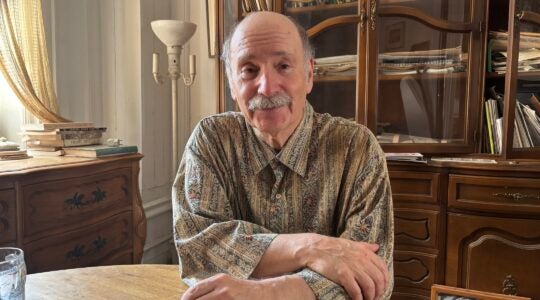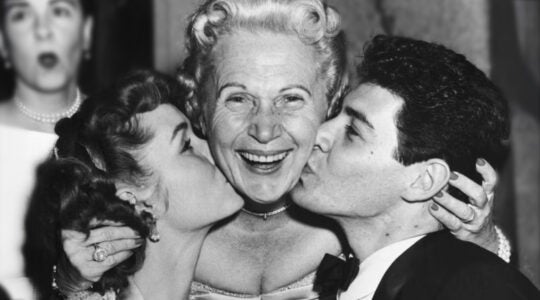The Israeli cabinet met again Wednesday to finally ratify the Wye peace accords. But Prime Minister Benjamin Netanyahu attached conditions that could delay full implementation of the land-for-peace agreement hammered out with American help.
One of the conditions is an understanding that the entire peace process could be ended should Palestinian President Yasir Arafat unilaterally declare a Palestinian state next May, as he has promised to do.
Another condition is that the 700-member Palestinian National Council convene in December to revoke clauses in the PLO charter that call for the destruction of the State of Israel. Netanyahu insisted that the PNC vote on the matter; the Palestinians argued that only an approval by acclamation was needed. Under a reported compromise worked out by the United States, delegates will vote by a show of hands but not all must be present and a two-thirds majority will not be required.
The Knesset is expected to ratify the Wye accord next week, according to an official of the Netanyahu government.
It calls for Israel to withdraw its troops from another 13 percent of the West Bank in three stages over a 12-week period. In return, the Palestinian Authority must implement a series of explicit steps to crackdown on terrorists and help ensure the safety of Israelis.
The cabinet had been discussing the Wye accord last Friday when two Arab suicide bombers detonated a car bomb in a crowded Jerusalem outdoor market, Mahane Yehuda. It killed them and injured 21 shoppers and passersby. The cabinet meeting was immediately adjourned.
Cabinet Secretary Danny Naveh said it would reconvene after it was “satisfied that the Palestinian Authority is taking intensive steps for an all-out war against the terrorist groups and their infrastructure.” President Bill Clinton called the bombing an “outrageous and cowardly act ” by the “enemies of peace [who] seek to derail” the Wye accord.
Found in the car’s wreckage were suitcases that suggested the men had planned to carry the bombs into the crowded market. Their families claimed the men had met in an Israeli jail. One of the bombers was reportedly embittered for the last 11 years; a bullet shattered part of his leg during a clash with Israeli troops when he was 13.
In announcing this week’s cabinet meeting to again consider the Wye accord, a government statement said Israeli Prime Minister Benjamin Netanyahu had received reports indicating the Palestinian Authority “has begun taking practical steps against the terrorist infrastructure and the terrorists in the area under its control.”
Israeli United Nations Ambassador Dore Gold said Netanyahu was also expected to receive assurances that the Palestinians would include the names of 30 Palestinian terrorists in its security plan. Israel wants them arrested by a specific date.
The militant Islamic Jihad claimed responsibility for last week’s car bombing and threatened more attacks “to confront the great conspiracy that aims to liquidate the Palestinian cause.”
A day after the attack, Palestinian forces arrested several members of the group in the West Bank and closed a nursery school linked to it. The forces seized educational videotapes and cassettes before locking the nursery and taking the key.
Reuters quoted the director of the nursery, Itaf Alayan, as saying: “They should allow us to live our lives, or they will be the ones pushing us to carry out suicide attacks.”
As part of the crackdown on terrorists, Israel demanded that the Palestinian Authority clampdown on their infrastructure, including schools, mosques, charities and inflammatory television programming.
Gold showed excerpts of such programs broadcast on Palestinian television to UN representatives from several countries last week. He said many of the representatives — deputy ambassadors and Middle East experts — were “shocked” when they saw Palestinian children singing joyfully of becoming suicide bombers.
Israel’s concern that the PNC remove the objectionable clauses of the PLO covenant was addressed two weeks ago by Gold in remarks to the UN.
“No other action more concretely can confirm before the Palestinians that the time for armed struggle has passed and the era of coexistence and cooperation has begun,” Gold said.
In another development at the UN this week, Israel’s credentials were accepted with those of 126 other nations. In his September address to the General Assembly, Arafat had promised to the challenge Israel’s right to represent all territory Israel captured in the Six-Day War in 1967.
Before the vote, the representative of Egypt said his country did not recognize Israel’s credentials beyond the 1967 borders — including Jerusalem, Gold noted.
“The Iranian representative said his country didn’t recognize the existence of Israel at all,” he added.
Gold said he did not respond to those comments to avoid a floor debate on the matter. He said there might be another attempt to question Israel’s credentials next month.
“That would be a very dangerous precedent for the UN,” said Gold. “It may boomerang on many countries that have their own territorial conflicts, something I have said in my background briefings [with diplomats].”
The New York Jewish Week brings you the stories behind the headlines, keeping you connected to Jewish life in New York. Help sustain the reporting you trust by donating today.




